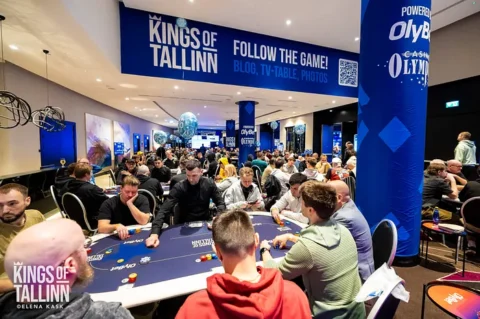The ongoing debate about whether poker is a game of luck or skill has been central to discussions in the gambling world and competitive gaming circles for years. While it’s clear that luck has an undeniable role in poker, the question remains whether the game is ultimately governed by skill or if the long-term successes of top players are due to good fortune. The game, with its complex strategies and varying elements, presents a unique case where both luck and skill play integral roles, but with different impacts over the short and long term.
1. The Role of Luck in Poker
Poker is often viewed differently than other traditional casino games. Most gambling games pit the player against the house, such as in blackjack or roulette, where the house always holds an inherent mathematical advantage. However, poker is unique in that players compete directly against each other, and this subtle yet important distinction brings skill into play in a way that other casino games do not.
Over time, it’s evident that the best poker players don’t just rely on luck; they rely on their ability to outplay their opponents. As practice makes perfect, it’s important to hone one’s skills. Casino writer Filip Jovchevski suggests plenty of top offshore poker rooms that are all regulated, have enticing welcome bonuses, and have a variety of games where players can improve their poker skills. Through practice, players can ensure that they don’t rely solely on luck when it comes to casinos.
In poker, luck is undoubtedly a significant factor, particularly in the short run. Every hand involves an element of chance, whether it’s the randomness of the cards dealt or the unpredictability of how opponents will act. Even the best poker players cannot control the cards they are dealt or predict how their opponents will play, making it possible for a less-skilled player to win a hand through sheer luck.
2. Professional Players: Mastery of the Game
Professional poker players spend years honing their skills. The top players are known for their mastery of poker theory, an understanding of optimal play, and a deep knowledge of hand ranges, pot odds, and expected value. These elements are not influenced by luck in the same way that the cards themselves are.
The best players also make critical decisions outside of the hands they play, such as carefully selecting games that offer the best return on their investment. Game selection, where a player decides which table or tournament to enter, plays a vital role in maximizing profit over time. A skilled player will identify weak opponents and choose games with favorable conditions, which directly affects their bottom line.

3. The Importance of Volume in Poker
Volume is another important factor in the skill aspect of poker. While luck may have a significant impact over a small number of hands, the more hands a player plays, the more consistent their results will become. In the short term, even a skilled player can experience losing streaks due to unlucky cards or bad beats, but over thousands of hands, these fluctuations tend to average out, and the player’s skill level begins to shine through.
This principle of variance means that luck tends to neutralize over time, giving way to skill and strategic play. A player who understands the mathematical side of poker and who can consistently make the right decisions will, in the long run, see their results reflect their expertise.
4. Bankroll Management and Its Role in Poker Success
However, a crucial element to success in poker is bankroll management. Even the most skilled player can go broke if they play beyond their financial limits. This is where the role of skill intertwines with discipline, as the best players know when to step away from a table to minimize losses or preserve their bankroll. By understanding variance and knowing how to manage the ups and downs of the game, a skilled player can mitigate the risk of relying too much on luck. Bankroll management is not just about knowing how much money to bring to the table; it also involves knowing which stakes to play at and when to adjust your approach to remain financially viable.
5. The Psychological Aspect of Poker
The psychology of poker further emphasizes the game’s reliance on skill. A player’s ability to read their opponents, recognize betting patterns and understand the motivations behind certain actions is key to mastering poker. These skills are honed over time through practice and observation, as well as an understanding of human behavior. Top players often win because they can exploit the weaknesses of their opponents, anticipating their moves and adapting accordingly. In contrast, those who rely on luck may not notice these subtleties, which can lead to suboptimal decision-making and increased vulnerability at the table.















